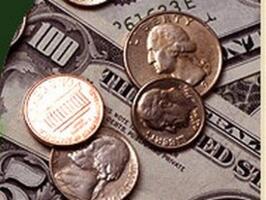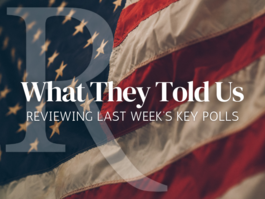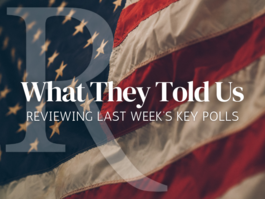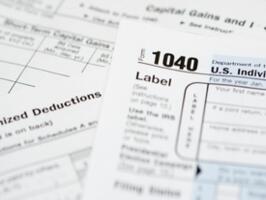Fiscal Cliff Creates Problems That Don't Faze Obama
A Commentary By Michael Barone
Is Barack Obama bluffing when he threatens to go over the fiscal cliff if Republicans refuse to agree to higher tax rates on high earners?
Some analysts think so. Keith Hennessey, a former top staffer for the Bush White House and Senate Republicans and a veteran of budget negotiations, argues that Obama's whole second term would be blighted if he allows the fiscal cliff tax increases and sequestration budget cuts to take place next month.
His argument is based on three assumptions. One is that going over the fiscal cliff would trigger a sharp recession and a weak economy thereafter. Many economists agree. Some disagree. I leave that argument to them.
Hennessey's second assumption is that Obama has other second term policy goals -- immigration reform, cap-and-trade legislation, tax reform -- that would be difficult to achieve if he breaks sharply with Republicans.
Third, he assumes that Obama, like previous presidents, wants vibrant economic growth and chooses policies that he thinks will stimulate it.
I wonder whether these second two assumptions are true.
On policy, it seems clear that Obama wants to preserve Obamacare and to continue something like the high levels of domestic spending of his first term -- 24 to 25 percent of gross domestic product.
But it's not clear he really wants comprehensive immigration reform. As a senator, he voted for immigration amendments that Edward Kennedy opposed as poison pills, fracturing the bipartisan coalition needed for passage.
As president, he failed to press for immigration legislation when Democrats had supermajorities. It was a useful issue in the 2012 campaign, but that is over.
Cap-and-trade legislation is a nonstarter so long as Republicans retain a majority in the House and unlikely even if Democrats gain one in 2014. Too many Democrats in marginal districts would look back at the Democrats whose 2009 votes for cap-and-trade helped defeat them in 2010.
Nor does Obama seem much interested in a 1986-style tax reform that lowers rates and reduces tax deductions. He'd rather raise rates on high earners, as would happen if we go over the fiscal cliff.
But doesn't this president, like his predecessors, want bounteous economic growth?
Maybe not. First-term presidents want strong economic growth because they think they need it to be re-elected. But Obama has already been re-elected without it.
And economic growth produces things Obama doesn't like. Some people -- and not necessarily those with government subsidies -- get very rich. Obama prefers a more equal income distribution. The Depression of the 1930s did a great job of increasing economic equality.
Obama seeks to direct the economy in certain politically correct channels. He delights in subsidizing "green jobs" making solar panels or electric cars. Not coincidentally, losers like Solyndra and Fisker had backing from Obama political insiders.
The oil and natural gas boom ignited by hydraulic fracturing -- fracking -- on private lands does not delight him so much. He sought credit for it on the campaign trail. But his regulators are itching to stamp it out.
One of the problems of prosperity, from this perspective, is that you can't predict what will happen next. People operating in free markets produce innovations that no one else anticipates.
Sluggish growth and recession, in contrast, make things more predictable. Constituencies that enjoy political favor -- UAW members at General Motors or Chrysler, for example -- can be subsidized to remain in place.
The cost of such subsidies can be extracted from disfavored constituencies. This is called, in Obama's words to Joe the Plumber, "spreading the wealth around."
Remember when ABC's Charlie Gibson asked candidate Obama if he would raise capital gains tax rates even if it brought less revenue to the government. Yes, Obama said. "I would look at raising the capital gains tax for purposes of fairness."
In contrast, it was after Bill Clinton agreed to cut the capital gains rate in 1997 that large enough gushers of revenue poured in to balance the federal budget.
Obama seeks to advance what Alexis de Tocqueville in "Democracy in America" called "soft despotism," with "a network of small, complicated, painstaking rules" -- think Obamacare -- to "finally reduce ... each nation to being nothing more than a herd of timid and industrious animals of which government is the shepherd."
Or so it seems to me. If so, why not risk a recession? It would keep the herd in need of shepherding.
Rasmussen Reports is a media company specializing in the collection, publication and distribution of public opinion information.
We conduct public opinion polls on a variety of topics to inform our audience on events in the news and other topics of interest. To ensure editorial control and independence, we pay for the polls ourselves and generate revenue through the sale of subscriptions, sponsorships, and advertising. Nightly polling on politics, business and lifestyle topics provides the content to update the Rasmussen Reports web site many times each day. If it's in the news, it's in our polls. Additionally, the data drives a daily update newsletter and various media outlets across the country.
Some information, including the Rasmussen Reports daily Presidential Tracking Poll and commentaries are available for free to the general public. Subscriptions are available for $4.95 a month or 34.95 a year that provide subscribers with exclusive access to more than 20 stories per week on upcoming elections, consumer confidence, and issues that affect us all. For those who are really into the numbers, Platinum Members can review demographic crosstabs and a full history of our data.
To learn more about our methodology, click here.



